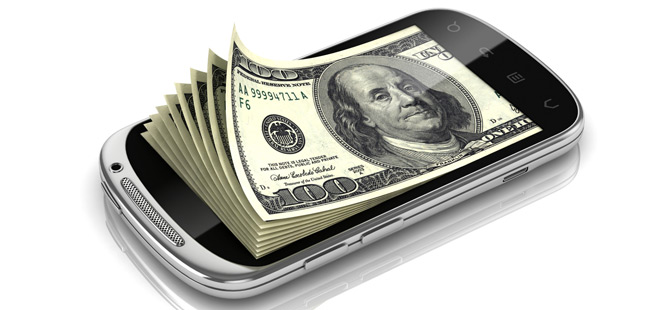
Eighteen months ago, I bet my career on mobile. The result was the HotelTonight app, which provides discounted, last-minute hotel bookings. HotelTonight is representative of a broader trend: the third-wave of electronic commerce.
[aditude-amp id="flyingcarpet" targeting='{"env":"staging","page_type":"article","post_id":402820,"post_type":"guest","post_chan":"none","tags":null,"ai":false,"category":"none","all_categories":"business,mobile,","session":"C"}']The first wave was connecting businesses to a network in order to send them electronic transactions. The second wave, which was enabled by the Internet, allowed users to access these electronic networks to perform transactions (aka e-commerce). The third wave, brought on by the mobile era, connects users via mobile devices for real-time, on-demand transactions.
This third wave of electronic commerce will significantly alter certain categories of commerce, particularly ones where the inventory is highly perishable.
AI Weekly
The must-read newsletter for AI and Big Data industry written by Khari Johnson, Kyle Wiggers, and Seth Colaner.
Included with VentureBeat Insider and VentureBeat VIP memberships.
For the airline industry, the progression was spread over half a century. The first wave was travel agents, the second wave was online travel agencies, and the third wave is currently allowing real-time flight changes and rebooking. Other categories like restaurant reservations (OpenTable) and food delivery (GrubHub), built their supplier networks simultaneously while building their websites, a complex and costly effort that took the better part of a decade.Now, they are bringing these services to mobile and unleashing entirely new use cases and unlocking significant value for their partners and customers.
Lastly, mobile has enabled the creation of services that embody all three waves of commerce, such as Uber (black cars) and Exec (executive assistants). These companies are building supplier networks and distributing their services on mobile devices, effectively bypassing the second wave of commerce (or making it irrelevant).
A successful second-wave company can face challenges when becoming a third-wave company, as the infrastructure, support services, and supplier connectivity were not originally built to handle real-time bookings. Orders need to be communicated instantly, as it’s just as likely that a customer is ordering from within the walls of the business as from their home. Likewise, telling a customer that they’ll receive an email response within 12 hours isn’t acceptable if the support request is about an appointment that is scheduled to end two hours from now.
As third-wave services become commonplace, consumers will find more situations to purchase from a business. For example, by enabling a consumer to order dinner on their train home, Grubhub increases the frequency of food delivery orders. Likewise, consumers are booking hotels at the last minute if they have an unexpected late night in the office and saving time by avoiding a long commute. Thus, mobile is generating primary demand and growing the overall market for various categories of commerce, not merely time and device shifting. This new group of buyers leads to improved economics and better capacity utilization for businesses. Businesses with perishable inventory can even offer a discount to target these spontaneous consumers. After all, an empty hotel room, dinner table or spa studio generates no revenue. In addition to economic benefits, on-demand mobile transactions have a harder-to-measure but equally important societal benefit of improving our Gross Domestic Happiness. Simply put, life is more fun when lived spontaneously, without plans and schedules.
Mobile, with its powerful devices, consumer ubiquity, and advanced developer environments, is the best platform in history for launching a business. I’m fascinated to see what will happen over the coming months and years as the mobile landscape evolves and matures. I believe that app stores will further reward product quality rather than determine app visibility based on the size of marketing budgets. Apps will exchange information and collaborate to solve users’ problems. Companies will hyper-target users with relevant marketing messages by bidding for user context, not keywords. Users will in turn accept and appreciate these offers, not be annoyed or afraid of them. New brands and services will emerge to fill remnant inventory with spontaneous customer demand. And, as a direct result, Gross Domestic Happiness will continue to rise.
[aditude-amp id="medium1" targeting='{"env":"staging","page_type":"article","post_id":402820,"post_type":"guest","post_chan":"none","tags":null,"ai":false,"category":"none","all_categories":"business,mobile,","session":"C"}']
Smartphone with cash image via ShutterStock
VentureBeat's mission is to be a digital town square for technical decision-makers to gain knowledge about transformative enterprise technology and transact. Learn More
